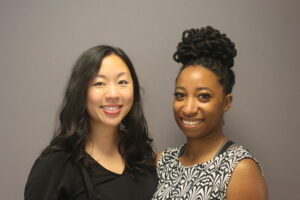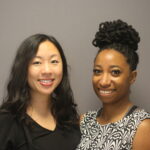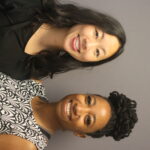Description
Colleagues Jing Wu [no age given] and Aminah Jones [no age given] share how their personal experiences with healthcare and in the pharmaceutical field have shaped their approach to health equity and patient advocacy.Subject Log / Time Code
Jing (J) introduces their organization, the American Society of Consultant Pharmacists.
Aminah (A) shares how she became a pharmacy fellow at ASCP.
J talks about her experience of surviving a traumatic brain injury (TBI) and living as a neurodiverse person. She remembers how her experience was affected by her healthcare coverage.
J recalls what it was like to go through pharmacy school while healing from her TBI.
J considers how suicide is a part of the patient experience for TBI survivors.
A remembers her pharmacy school experience, which coincided with her mother getting cancer.
J talks about how the isolation from the covid-19 pandemic affected her mother, and shares how she was able to support her.
J and A discusses health equity, justice, and culture. They talk about the lack of proper care for Black women, and A talks about being a patient advocate.
Participants
- Jing Wu
- Aminah Jones


